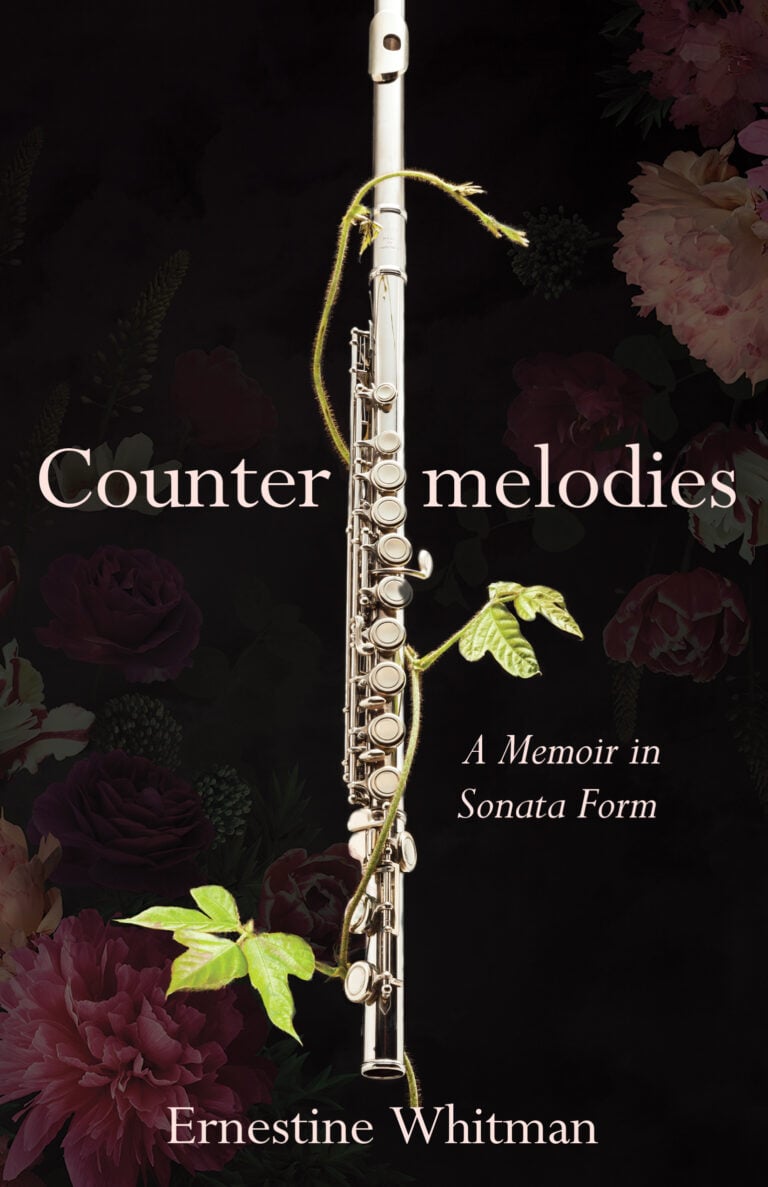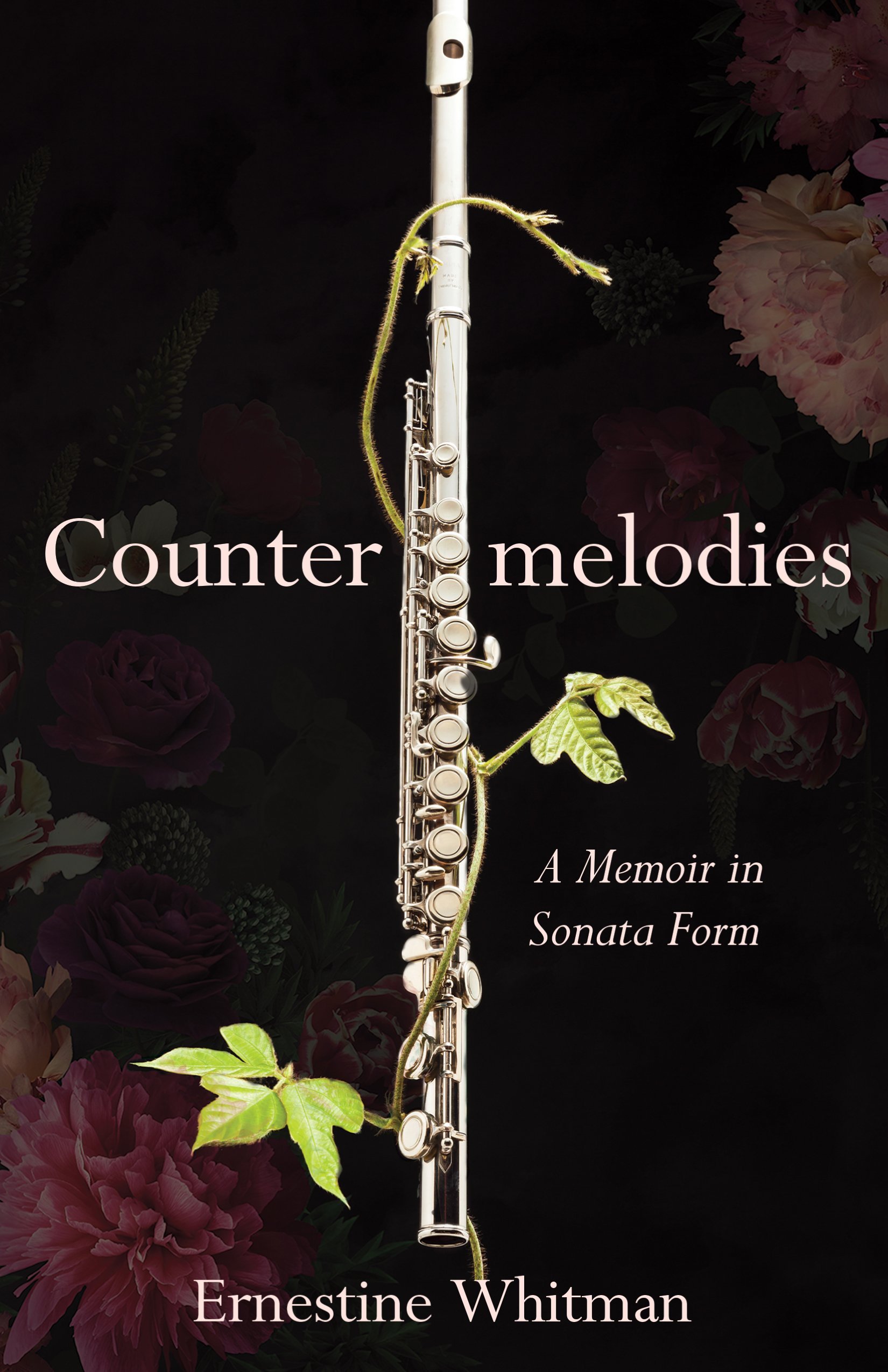Ernestine Whitman’s COUNTERMELODIES: A Memoir in Sonata Form offers an intimate and stirring account of her journey through the demanding world of professional classical music. Primarily set against the backdrop of 1960s Atlanta, Whitman’s narrative blends her quest for paternal validation with her profound connection to music and the confrontations with institutional misogyny in the orchestral world.
Cleverly organized to mirror the three-part structure of a classical sonata (exposition, development, recapitulation), COUNTERMELODIES opens with an exploration of Whitman’s childhood through her relationship with her demanding father, the shadow of her accomplished sister, and her transformative discovery of the flute. Whitman’s writing is remarkably precise, judiciously wielding descriptive language that tends to cut straight to the emotional core. Observations about her father, in particular, are sobering and visceral: “Although my father never resorted to physical violence,” Whitman explains, “his verbal attacks were bad enough.”
From there, Whitman chronicles her experience with a former mentor, whose behavior dramatically shifted after she joined him as second flute in the Atlanta Symphony Orchestra. The abuse took a massive toll on Whitman: “In 1969, few people talked about sexual harassment. But even if I had known the phrase, it wouldn’t have mattered. One pass/threat had little effect on me; it was the daily denigration of my playing that destroyed my confidence.” Fortunately, Whitman eventually finds a “path back to sanity” through music. That path ultimately led to a thirty-three-year career as a professor of flute at Lawrence University, where she “gradually learned what most teachers know: the best way to understand something is to teach it to others.”
What pushes COUNTERMELODIES beyond a traditional memoir is Whitman’s honesty when it comes to the dark side of her profession. This memoir documents Whitman’s battles with depression and suicidal thoughts, including a devastating encounter with an unethical therapist who violated professional boundaries. Whitman’s account of surviving and eventually thriving within the ruthlessly competitive realm of professional classical music is both illuminating and deeply moving. Her story exposes how established hierarchies and unchecked authority continue to perpetuate cycles of abuse.
Through each movement of her story, Whitman’s passion for music remains the constant thread that pulls her forward—providing both structure and her eventual salvation. From the finer points of flute playing to the minutiae of an orchestral performance, Whitman masterfully dissects the intricate world of classical music. Though fellow musicians will recognize and most appreciate the musical terminology and detailed insights, Whitman has achieved something remarkable here: she has made the demanding world of classical performance accessible and compelling for readers of all backgrounds.
Through powerful storytelling and unflinching honesty, Ernestine Whitman’s COUNTERMELODIES: A Memoir in Sonata Form transcends genre boundaries—providing both a strong critique of classical music’s patriarchal foundations and a testament to the redemptive and healing capacity of music.
~James Weiskittel for IndieReader


